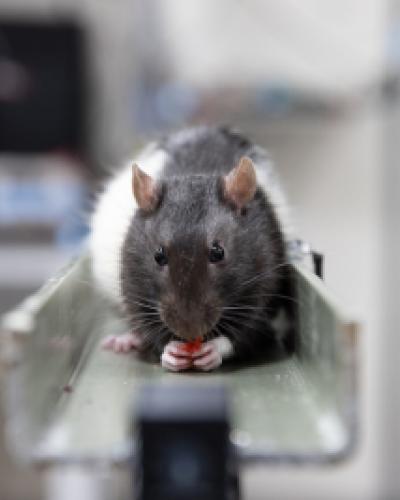Cornell is one of nine universities worldwide selected to join the Eric and Wendy Schmidt AI in Science Postdoctoral Fellowship, a program of Schmidt Futures, to accelerate the next scientific revolution by applying artificial intelligence to research in science, technology, engineering and mathematics.
The Schmidt AI in Science Fellowships, a $148 million program, is part of Schmidt Futures’ $400 million effort to support researchers developing and using AI in innovative ways to make the world better. Each university will select a cohort of up to 20 postdoctoral fellows annually for up to six years; Cornell will recruit and train a cohort of up to 100 postdoctoral fellows over the next six years in the fields of natural sciences and engineering.
Cornell’s co-leads on the program are Carla Gomes, the Ronald C. and Antonia V. Nielsen Professor in the Cornell Ann S. Bowers College of Computing and Information Science; and Fengqi You, the Roxanne E. and Michael J. Zak Professor in Energy Systems Engineering in the Robert Frederick Smith School of Chemical and Biomolecular Engineering, in the College of Engineering.
“This is such an exciting program, and will directly complement our Radical Collaborations Initiative in AI, which involves a large number of faculty engaged in AI,” Gomes said. “Cornell has been a pioneer in AI, and in particular AI for scientific discovery, but there is still a lot to be done.”
“This program will catalyze creative and transformative applications of AI for breakthroughs in science and engineering,” You said, “and enable a broader Cornell research community to adopt AI in research applications across a range of science and engineering domains.”
Also on the program’s leadership team are Alex Flecker, professor of ecology and evolutionary biology (College of Agriculture and Life Sciences); and Jesse Goldberg, associate professor of neurobiology and behavior (College of Arts and Sciences).
Cornell will deploy the Schmidt postdoctoral fellows into four broad areas – materials discovery; physics; biological sciences; and sustainability sciences – leveraging its strength in cross-disciplinary research. Cornell also plans to partner with other institutions in low- and middle-income countries (LMICs), working with Global Cornell, to enhance AI’s ability to improve lives across the globe.
The Schmidt AI in Science Fellowships program seeks to accelerate the incorporation of AI techniques into the natural sciences, engineering and mathematical science, providing access to AI tools and training to the sharpest minds on the front lines of scientific innovation.
Universities in the program will provide advanced AI training, funded research support and professional development opportunities – both to shape research in their own departments and to help build a global network of AI-trained scientists.
“Scientific innovation today is too often defined by new-use cases for existing technologies or refining previous advancements, rather than the creation of entirely new fields of discovery,” said Eric Schmidt, co-founder of Schmidt Futures. “This is why we need to accelerate the next global scientific revolution – by supporting broad and deep incorporation of AI techniques into scientific and engineering research.”
The fellowship aims to create breakthroughs across a range of scientific fields – from creating new drugs for fighting diseases to helping produce and store energy more efficiently.
“Cornell is an established leader in AI and has top scientists in various disciplines such as materials discovery, sustainability, and the biological and physical sciences. This program brings them together,” said Kavita Bala, dean of Cornell Bowers CIS and lead dean of the Cornell AI Radical Collaboration Initiative. “We are excited to be part of this philanthropic initiative to nurture the next global cohort of scientific leaders using AI to solve some of the world’s biggest challenges.”
In addition to Cornell, the inaugural Schmidt Postdoctoral Fellowship universities include: the University of Toronto; Nanyang Technological University, Singapore; the National University of Singapore; Oxford University; Imperial College London; the University of California, San Diego; the University of Chicago and the University of Michigan.





